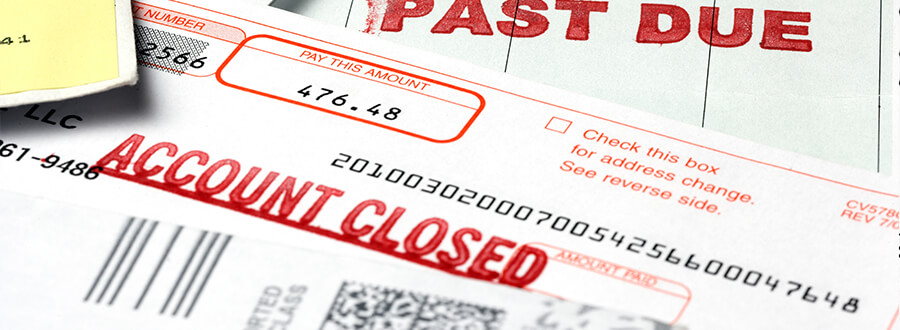Key Points
- Credit card companies can reduce credit limits or close accounts without warning.
- Closed accounts and lower limits can increase your credit utilization ratio, negatively impacting your credit score.
- You can take steps to lessen the harm to your credit if creditors target your accounts.

Fearing consumers would become cash-strapped and run up credit lines due to the pandemic, creditors targeted one-third of credit card accounts held by consumers. Between mid-April and mid-May of 2020, credit card issuers reduced credit lines and closed accounts affecting over 70 million consumers.
During the Great Recession, credit card companies responded similarly by closing and cutting credit lines for 62% of their customers. While it’s understandable that banks want to protect their risk exposure, the impact on consumers can be devastating.
Lower credit limits and closed accounts can lower credit availability and increase your credit utilization ratio, reducing your credit score when you might need access to credit the most.
Why Credit Card Issuers Close Accounts and Lower Credit Limits in a Crisis?
Consumers often rely on lines of credit to get through a financial crisis. However, if the economic downturn extends beyond a few months, they may not be able to repay the debt.
Increased debt balances mean you must absorb higher monthly payments to stay afloat. If your income does not recover quickly, you could default on the debt, which is the scenario, lenders are trying to protect against when they close accounts or reduce your line of credit.
How Does a Closed Account or Lower Credit Limit Affect Your Credit Score?
Credit scoring companies use five key factors to calculate your credit score. They include:
- Payment history
- Balance-to-credit-limit ratio (utilization ratio)
- Length of credit history
- New applications and
- The mix of loans and lines of credit
The balance-to-credit-limit ratio considers your available balances in relation to the balances you carry from month to month. Lower credit limits and closed revolving accounts both result in a higher utilization ratio, which accounts for 30% of your credit score. Second, in importance only to on-time payments.
Closed accounts can also impact your credit history’s length if you have maintained the card for many years. The length of your credit history is 15% of the overall credit score.
Steps you can Take to Reduce the Chances a Lender Will Target Your Accounts
Things you can do to decrease your risk include:
- Use your cards every month. Dormant cards are an easy target for account closure. Recent activity, even if you pay it off every month, will reduce account closures.
- Do not increase debt balances on multiple cards. Creditors look beyond the way you manage your account. Companies watch how you manage all your debt. When debt balances trend upward, it is a sign of financial distress, and credit card companies are likely to reduce limits even if you never miss a payment.
- Suspend payments with caution. In times of crisis, companies may offer to waive payments for a few months. Taking advantage of this offer on one or more accounts could signal all your creditors that you are under financial duress.
How Should You Respond if Your Card Issuer Targets Your Account?
Appeal the decision. If you can show that you genuinely are not in financial distress, contact your credit card company and appeal the decision.
Pay down debt to minimize the damage to your credit. Reducing your access to credit will quickly lower your credit score. If one company reduces your limit, you can take proactive steps to reduce your debt and lower the odds that more creditors will follow.
Consolidating your debt is another way to reduce revolving debt without paying off balances immediately.
Get help through a debt relief program. If you are in financial distress, now might be the perfect time to act. Lost access to lines of credit could further complicate your financial situation. Working with a debt settlement company can allow you to pay less each month and eliminate your debt in less than five years.
